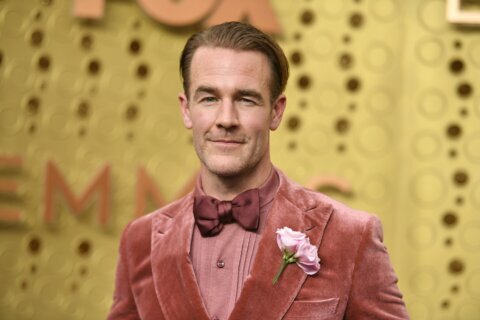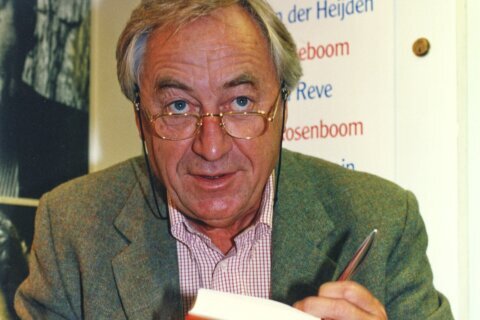In 1940, Alfred Hitchcock crossed the pond to direct his first American picture for David O. Selznick, who was fresh off a Best Picture win for “Gone with the Wind” (1939).
The result was another Best Picture winner in “Rebecca” (1940), sadly the only time Hitchcock won the prize in his illustrious Hollywood career in the decades to come.
Now, it gets a hauntingly romantic remake on Netflix, which, like the panned “Psycho” remake in 1998, proves that it’s impossible to improve upon the Master of Suspense.
Based on the 1938 gothic novel by Daphne du Maurier, the story follows a newlywed (Lily James), who marries the charming Maxim de Winter (Armie Hammer) and moves into his daunting family estate Manderley along the English coast. Before long, she’s haunted by the memory of his first wife, Rebecca, whose legacy haunts the home.
James is well cast, lending a naivety she brought to “Cinderella” (2015), “Baby Driver” (2017) and “Yesterday” (2018). Still, it’s hard to compete with Joan Fontaine, whose “Rebecca” role propelled her to an Oscar the following year for Hitchcock’s “Suspicion” (1941) and global acclaim for Max Ophuls’ “Letter from an Unknown Woman” (1948).
The same goes for Hammer, who burst onto the scene in “The Social Network” (2010) before a career comeback in “Call Me By Your Name” (2017). He makes a dapper Mr. de Winter with a smart acting choice of hands clasped around James’ neck, but the role is too synonymous with Laurence Olivier, the crown jewel of British theatre.
Most intriguing is Kristin Scott Thomas (“The English Patient”) as Mrs. Danvers, the jealous and creepy housekeeper who does everything in her power to send the new Mrs. de Winter packing. It’s hard to stack up to Judith Anderson’s performance, voted No. 31 on the American Film Institute’s list of Greatest Movie Villains of All Time.
Director Ben Wheatley (“Doctor Who”) attempts to recreate several of Hitchcock’s specific shots, particularly the entrance of Mrs. Danvers, who abruptly approaches the camera with a cold stare. However, rather than the creepy music of Franz Waxman, Wheatley inserts a bubbly love song on the soundtrack that ruins the suspense.
That’s not to be too harsh on Wheatley; it’s a tough task to remake a classic that really never needs to be remade. He’s essentially working with one arm tied behind his back in the director’s chair. Right from the opening narration, “Last night I dreamt I went to Manderley again,” it feels like an imitation rather than the genuine article we love.
Even so, production designer Sarah Greenwood (“Atonement”) deserves props for building a lavishly sunny opening in Monte Carlo, where the two lovers meet. This contrasts with the gothic Manderley of checkerboard floors, symbolic mirrors, massive portraits, antique furniture and items embroidered with a cursive “R” for Rebecca.
Such props and architecture work well, but the entire presentation is way too colorful by cinematographer Laurie Rose (“Peaky Blinders”). While the shiny first 20 minutes are daresay more engaging than the 1940 version, the popping colors tank the film once we get to Manderley, which was far creepier in ghostly black and white shadows.
Wheatley also introduces a brand new series of nightmare sequences, as James imagines Hammer walking down Manderley’s dark hallways, ivy wrapping around her feet via the latest special effects, while a skeleton floats eerily through the water.
It all builds to a fiery finale that loses its power by showing Danvers light a match before the car drives up. Oddly, it also crafts a different demise for Danvers, who was famously crushed by collapsing rafters as flames engulfed the letter “R” in a final shot that inspired “Citizen Kane” (1941). This packed more punch than 2020 falling action.
We understand the filmmakers attempting to update this story for the 21st century, but it’s mostly a fool’s errand. Hopefully it provokes youngsters to discover the 1940 classic for the first time, while inspiring others to return to Manderley one more time.
Comparison is the enemy of joy both in life and in cinema. Just as Mr. de Winter can’t forget the memory of his original wife, we can’t forget the memory of the original movie.









